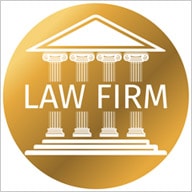Office Of Lawyers Professional Responsibility

Lawyers
Julie Elizabeth Bennett
General Practice,
Reviews


No problems interacting with the office, they were always polite. However there doesn't seem to be any recourse for lawyers that leverage loop holes and exploit people instead of upholding the law. Protecting their own it seems. Lawyers are a class above common folk apparently.
They did a very good job investigating attorney Gregory Erickson who intentionally violated my private information and put it into public record. Very grateful for the thorough investigation which gave me me peace of mind, They kept me informed the entire time. No bias.
It’s really funny I have to have pick at least one star To post . this is just more Corruption. Lawyers, also known as “officers of the court,” have an enormous responsibility in society and the judicial system. For this reason, ethical guidelines and rules are in place and regulated by a self-governed organization called The Minnesota Office of Lawyers Professional Responsibility (OLPR). The OLPR states,“the legal profession’s relative autonomy carries with it special responsibilities of self-government: The profession has a responsibility to assure that its regulations are conceived in the public interest and not in furtherance of parochial or self-interest concerns of the bar.” The current OLPR Director, Susan Humiston, articulates that “public discipline in professional responsibility cases is imposed not to punish the attorney, but to protect the public, the profession, and the judicial system, and to deter future misconduct by the attorney and others” (2017). It is important for the reader to first understand the importance and effort that goes into picking quality attorneys for the very reason of protecting the public and judicial system. Applicants for admission to the Minnesota Bar have to first meet requirements of moral character and fitness. Once passing the state licensing test, an attorney takes an oath of office and is then provided with specific ethical guidelines and rules to follow. These rules of ethics, which are geared to protect the public, profession, and judicial system, are known as the Rules of Professional Conduct (hereinafter, ‘Rules’). The Rules direct much attention to the continued honesty and moral character in the professional and personal lives of lawyers. According to the OLPR, “compliance with the rules, as with all law in an open society, depends primarily upon understanding and voluntary compliance, secondarily upon reinforcement by peer and public opinion and finally, when necessary, upon enforcement through disciplinary proceedings.” With all of this said, and all of the guff the OLPR tries to put out there regarding their purpose and what the Rules expect of attorneys, it is apparent that they are known for rarely, if ever, punishing attorneys for disobeying the Rules or putting the public and the justice system in jeopardy. Since attorneys do not have or fear consequences, one cannot deny that this is the basis for which attorneys misuse their positions and freely commit acts of misconduct. I have such an experience where I reported and provided evidence of an attorney’s several counts of dishonesty and selfish motives, not conforming to requirements of the law, using the law and misleading laws for personal advantages, not upholding the legal process, bad faith obstruction of the disciplinary process, and indifference to making restitution.The Director, in the DETERMINATION THAT DISCIPLINE IS NOT WARRANTED, casually dismissed allegations. Despite evidence of misconduct and violations of specific Rules, The Director stated the subject of misconduct by the attorney should be addressed in a court and not in a discipline system. In fact, the Director was more interested in disproving, misconstruing blatant evidence, making excuses for, and ignoring/failing to address specific allegations of the attorney’s egregious misconduct. The OLPR's specific Rules, and the Director stating her purpose (to protect the public, profession, and judicial system) when attorneys are rarely held accountable is misleading that ethical checks and balances exist in the legal profession. As a result, ignoring conduct that violates the Rules that are set forth by this agency, the OLPR and Director’s actions undermine any confidence the public has in the legal profession and the legal system.
Staff has always been polite and very helpful. No complaints from me and happy this office has been a useful tool for me to use.
Evidence means nothing here. They protect their own.



